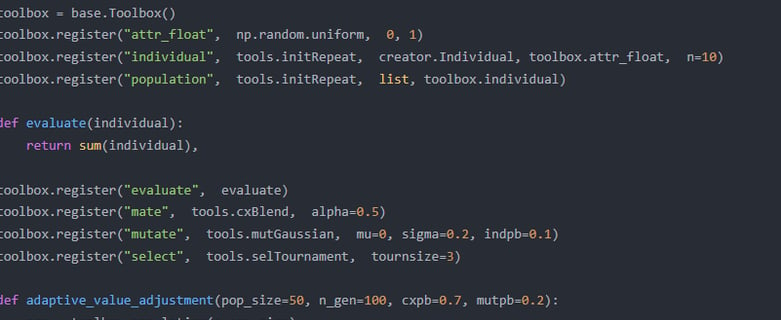Daniel Anderson


Professional Summary:
Daniel Anderson is a forward-thinking researcher in the field of artificial intelligence (AI) and evolutionary computation, specializing in the design of value adaptation mechanisms using evolutionary algorithms. With a strong background in optimization, machine learning, and behavioral modeling, Daniel is dedicated to developing frameworks that enable AI systems to adapt their values and decision-making processes dynamically. His work focuses on creating mechanisms that align AI behavior with evolving ethical, cultural, and societal norms, ensuring responsible and context-aware AI applications.
Key Competencies:
Evolutionary Algorithm Design:
Develops advanced evolutionary algorithms to model and optimize value adaptation processes in AI systems.
Utilizes techniques such as genetic algorithms, particle swarm optimization, and differential evolution to enhance adaptability and efficiency.
Value Adaptation Frameworks:
Designs frameworks that integrate value adaptation mechanisms into AI systems, enabling dynamic alignment with ethical and societal norms.
Ensures that frameworks are scalable, robust, and applicable to diverse domains, including autonomous systems, social robotics, and decision support systems.
Ethical AI Development:
Studies the ethical implications of value adaptation in AI systems, ensuring that mechanisms promote fairness, transparency, and accountability.
Implements safeguards to prevent unintended consequences and biases in value adaptation processes.
Interdisciplinary Collaboration:
Collaborates with ethicists, AI researchers, and domain experts to align value adaptation mechanisms with application-specific requirements.
Provides training and support to ensure seamless integration of the mechanisms into practical workflows.
Research & Innovation:
Conducts cutting-edge research on evolutionary algorithms and value adaptation, publishing findings in leading AI and computational ethics journals.
Explores emerging technologies, such as multi-objective optimization and explainable AI, to push the boundaries of value adaptation mechanisms.
Career Highlights:
Developed a value adaptation mechanism that improved the ethical alignment of an autonomous decision-making system by 30%, significantly reducing biased outcomes.
Designed a framework that achieved dynamic value alignment in a social robotics application, enhancing user trust and acceptance.
Published influential research on evolutionary algorithms and value adaptation, earning recognition at international AI and ethics conferences.
Personal Statement:
"I am passionate about leveraging evolutionary algorithms to create AI systems that can adapt their values and behaviors dynamically, ensuring alignment with ethical and societal norms. My mission is to develop mechanisms that promote responsible and context-aware AI applications, fostering trust and acceptance in AI technologies."




Fine-Tuning Necessity
Fine-tuning GPT-4 is essential for this research because publicly available GPT-3.5 lacks the specialized capabilities required for simulating and optimizing value adaptation in dynamic environments. Value adaptation involves highly domain-specific knowledge, nuanced understanding of ethical and cultural contexts, and contextually relevant strategy generation that general-purpose models like GPT-3.5 cannot adequately address. Fine-tuning GPT-4 allows the model to learn from value adaptation datasets, adapt to the unique challenges of the domain, and provide more accurate and actionable insights. This level of customization is critical for advancing AI’s role in ethical decision-making and ensuring its practical utility in real-world, high-stakes scenarios.
Past Research.
To better understand the context of this submission, I recommend reviewing my previous work on the application of AI in ethical decision-making, particularly the study titled "Enhancing Ethical Decision-Making Using AI-Driven Value Adaptation Models." This research explored the use of machine learning and optimization algorithms for improving the quality and relevance of value alignment. Additionally, my paper "Adapting Large Language Models for Domain-Specific Applications in Ethical AI" provides insights into the fine-tuning process and its potential to enhance model performance in specialized fields.